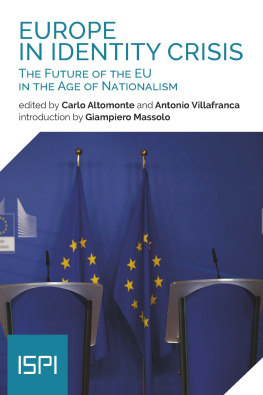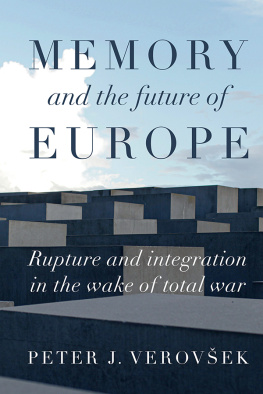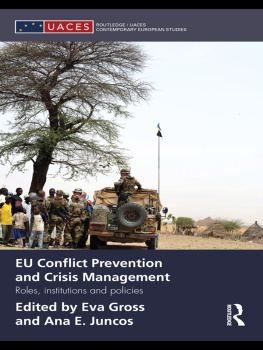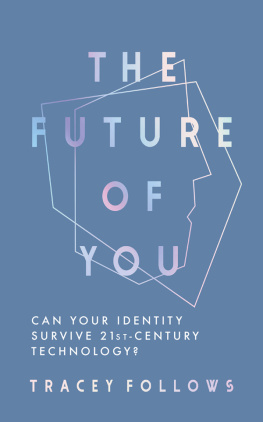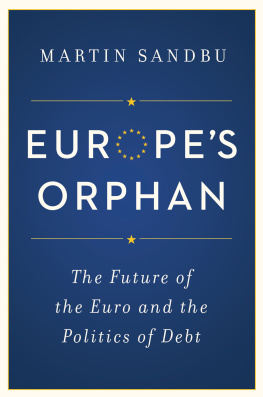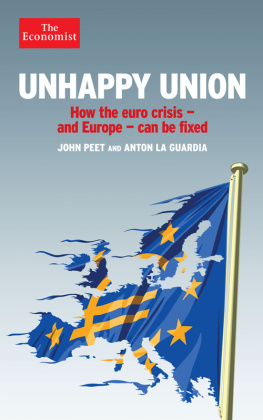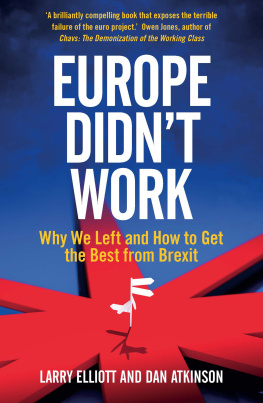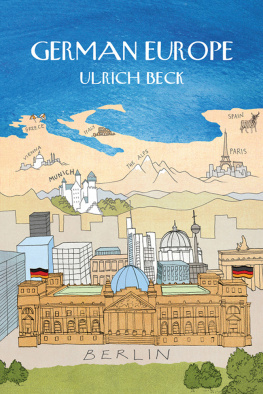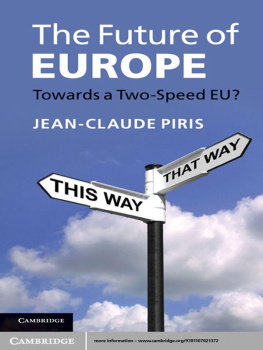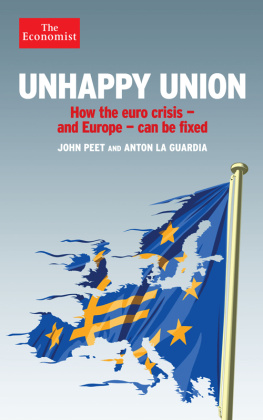2019 Ledizioni LediPublishing
Via Alamanni, 11 20141 Milano Italy
www.ledizioni.it
Europe in Identity Crisis. The Future of the EU in the Age of Nationalism
Edited by Carlo Altomonte and Antonio Villafranca
First edition: December 2019
This report is published by ISPI with the support of the Italian Ministry of Foreign Affairs and International Cooperation, in accordance with Article 23- bis of the Decree of the President of the Italian Republic 18/1967. The opinions expressed are those of the authors. They do not reflect the opinions or views of the Italian Ministry of Foreign Affairs and International Cooperation.
Print ISBN 9788855261579
ePub ISBN 9788855261586
Pdf ISBN 9788855261593
DOI 10.14672/55261579
ISPI. Via Clerici, 5
20121, Milan
www.ispionline.it
Catalogue and reprints information: www.ledizioni.it
Introduction
The European Union (EU) was built upon the very principles and values which inspired the creation of the Bretton Woods Institutions The lesson learnt from the atrocities and disruption of the two world conflicts was that liberal norms and Institutions were key to provide peace and prosperity. Indeed, the EU turned out to be a successful liberal experiment, as it allowed to root out military confrontation among its Member States and prompted an impressive process of economic catching up with the US, with growth rates well above 4% in the 1960s and 1970s. It was just a matter of time before EU Member States became some of the wealthiest countries in the world, with the inclusion of four of them in the G7 as evidence of such a resounding result. All throughout the Cold War, and even more after the fall of the Berlin Wall, the message to the world was crystal clear: the well-being of citizens goes hand in hand with the adoption of liberal and multilateral norms, and with the ensuing democratic transition. From Asia to Latin America, the EU regional integration process served as an inspiring case study to analyse and possibly replicate. In the same vein, after the end of the Cold War, Central and Eastern European countries kept knocking on Brussels door to join the successful EU club of wealthy countries. With an average per capita income of some $26,500 and solid growth prospects, the then-15 EU Member States saw the admission of new members not only as an acceptable but also as a desirable result. Against this backdrop, in 2004 the EU went through its biggest enlargement ever.
Fifteen years later, however, the European picture looks much grimmer. Albania and North Macedonia have been kept in the waiting room, as European leaders or more exactly some of them (led by France) decided to postpone yet again the opening of their accession negotiations. Other countries that, in the past, seemed committed to walk all the way to full EU membership, such as Turkey, are now drifting away. In the EU, discontent grows out of a sluggish economy in a context of rising income inequality and regional disparities within Member States. The Eurosceptic sentiment, in the past mainly confined to invoking a change of course in EU policies, is now openly calling for the break-up of the EU itself, for the first time since its creation. Brexit stands as the most serious symptom of a broader trend that is clearly mirrored also in the composition of the EU Parliament after the last elections, when Eurosceptic and nationalist parties gained an unprecedented number of seats. Not to mention any recent national election, with these parties and movements jeopardising traditional political actors.
The longstanding honeymoon between citizens and Europe risks being over. Indeed, this is also due to the new and profoundly changed international context. In todays world, liberal democracy is not necessarily seen as a precondition for growth and prosperity. A great power such as China can grab the low-hanging fruits of globalisation without being a democracy, in fact becoming even more sceptical about democratic transition as the recent developments in Hong Kong remind us. Russia and Turkey are going down the path of illiberal democracy, which is a tempting route also for some EU Member States, especially in Eastern Europe. The very founders of the global multilateral order, the United States, are at the front line in criticising it under the banner of Donald Trumps America First. As a result, the European Union seems to be losing its reference points, as the principles that upheld its creation are being increasingly questioned around the world and within itself.
In a nutshell, the EU appears to be in an identity crisis. Its chances to survive hinge upon its ability to deliver at home and abroad, without abandoning its values and principles but rather adapting and relaunching them in the new international context.
To this aim, this book poses some key questions: what are the root causes of todays EU identity crisis? How to carve out a new role for Europe in a world of big players? How to benefit from new partners (e.g. China) without severing ties with traditional allies, especially in a time of trade wars? How to contain Eurosceptic forces within Europe by reducing inequalities and disparities? How to strengthen the common currency with a view to relaunching a more sustainable and balanced growth? This volume addresses these issues while proposing viable options to re-start the EU ability to meet the expectations of its peoples.
To better understand the origins and implications of the EU identity crisis, in the opening chapter Carlo Altomonte and Antonio Villafranca investigate the international shifts that constrain the EUs ability to provide peace and security. They then move to analyse the extent to which the post-crisis environment has hampered growth and cohesion within the single market. They conclude with some policy recommendations derived from the other chapters of this volume.
Ioannis Galariotis and Fabrizio Tassinari further analyse the external dimension of the EU identity crisis and, in particular, its implications for the EU foreign and security policy. The authors elaborate on the concept of strategic autonomy, as outlined in the 2016 Global Strategy of the EU. To deal with faltering old alliances, unstable neighbourhoods, and new challengers to global stability and multilateral governance, EU Member States need to forge a truly common strategic culture.
The evolution and rationale behind todays trade war between Washington and Beijing are at the core of Niclas Frederic Poitiers analysis in chapter 3. Specific attention is devoted to the effects of the trade war on the world economy and particularly to the implications of a potential disintegration of the WTO on the EU and its member states. The author suggests viable options for the EU to secure its own interests in a time when the multilateral approach to trade seems increasingly under attack.
Francesco Saraceno and Jean-Paul Fitoussi shift the spotlight on the internal dimension of the EU identity crisis. The integration of global markets is a double-edged sword: while it lifted hundreds of millions out of poverty around the world, income inequalities and regional disparities emerged as a major threat to the well-being of citizens in Europe and beyond. The resulting discontent is fanning the flames of populist and anti-establishment movements. From taxation to investment in education and healthcare, the authors offer some political options to escape the fate of unequal European societies.

